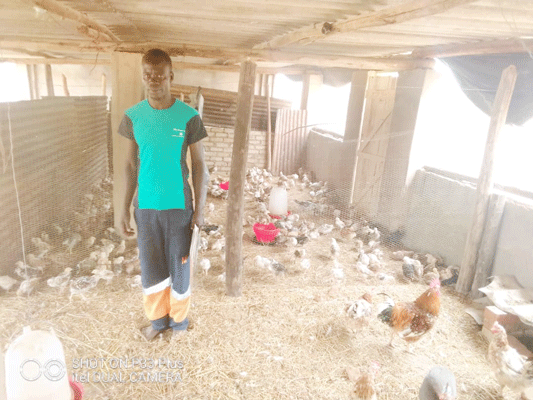
The Mapira homestead in the Dzvete area in Goromonzi North is popular to many.
BY JAIROS SAUNYAMA
It is not about the beautiful modern houses, but a thriving poultry and goat project that has become the talk of the village.
Being done on a small piece of land, a hectare to be precise, the two projects tell a story of massive investment in innovation and modern farming practices.
To ensure that both projects are successful, the owner, Allan Mapira, a lawyer residing in the United Kingdom, has employed a manager, who is a holder of diploma in Agriculture from Mlezu Agricultural College, Itai Mavambe (35), whose expertise is shown in how he has turned the fortunes of the business since August this year.
Mapira told Standard Style that he had to invest into the plot as he prepares for his future when he returns home.
“As someone who has lived in the UK since 2003, I knew one day I would return home. but the question I always asked myself was about how I would survive especially having been used to a very good life and having regular income,” Mapira said.
“I did my research and together with the little knowledge I had about chickens, I found out that with poultry I didn’t need much capital.
- Chamisa under fire over US$120K donation
- Mavhunga puts DeMbare into Chibuku quarterfinals
- Pension funds bet on Cabora Bassa oilfields
- Councils defy govt fire tender directive
Keep Reading
“As someone who is passionate about livestock farming, I decided to give it a try but made sure I had the right person managing my project.
“Although I attained LLB Honours and Masters degrees in Law when I came to the UK, I still doubted if I would get formal employment and earn a good salary. so the only option was to start a project that would provide me with a regular income and good returns.
“I was also aware of the risks involved but I have always believed in taking risks. I then decided to venture into poultry and goat production, but made sure I had a qualified manager, someone who had the A-Z knowledge about the project.”
less than four months into the project, there are around 1 200 “roadrunner” (free-range) chickens with the target being 15 000 in the next few months. This is achievable as the farmer has already purchased a hatcher that carries 3 500 eggs.
Three young people are employed alongside Mavambe with more set to join soon.
“We have a fowl run with a carrying capacity of 1 300 laying hens and a goat kraal which carries 250 goats,” Mavambe said.
“This farming season, we have secured a 9-hectare piece of land where we are going to grow maize, soya beans and sunflowers so that we can make our own feed.
We bought a new incubator and and a hatcher which carries 3 500 eggs.
“The advantages of backyard animal production lie in the fact that it utilises excess family labour and surplus on the farm with few purchased inputs.
“The project has definitely improved our financial status. We will be supplying roadrunner chickens and goats to all local markets and beyond. Goats and chickens multiply very fast as compared to other animals and they can be integrated.”
According to Mavambe, “roadrunners” and goats are drought-resistant, hence they can survive under weather extreme conditions.
A number of Zimbabweans in the diaspora have been acquiring farming land as they prepare for their future upon returning home. The new dispensation has been calling for farmers to employ latest technologies and innovation to boost production in both crop and animal production.
“Our main aim is to produce good quality meat, eggs, chicks from poultry and goats locally and internationally at affordable rates,” Mapira said.
“We are currently doing incubation at low rates as well with our bosh eggs already on the market.”
Though he is living thousands of kilometres away from his home, Mapira has trusted his project into the hands of Mavambe.
However, the production at the homestead is an eye opener to many as modern farming methods no longer require vast pieces of land.










